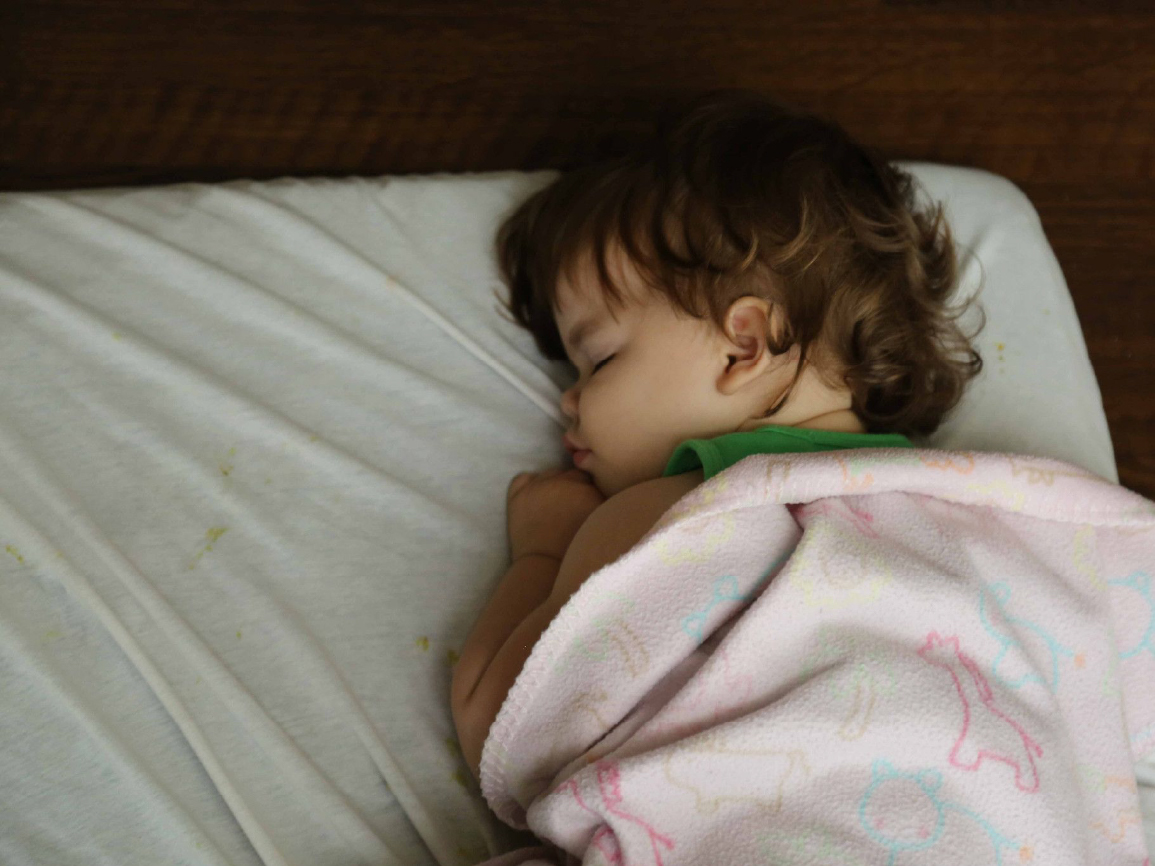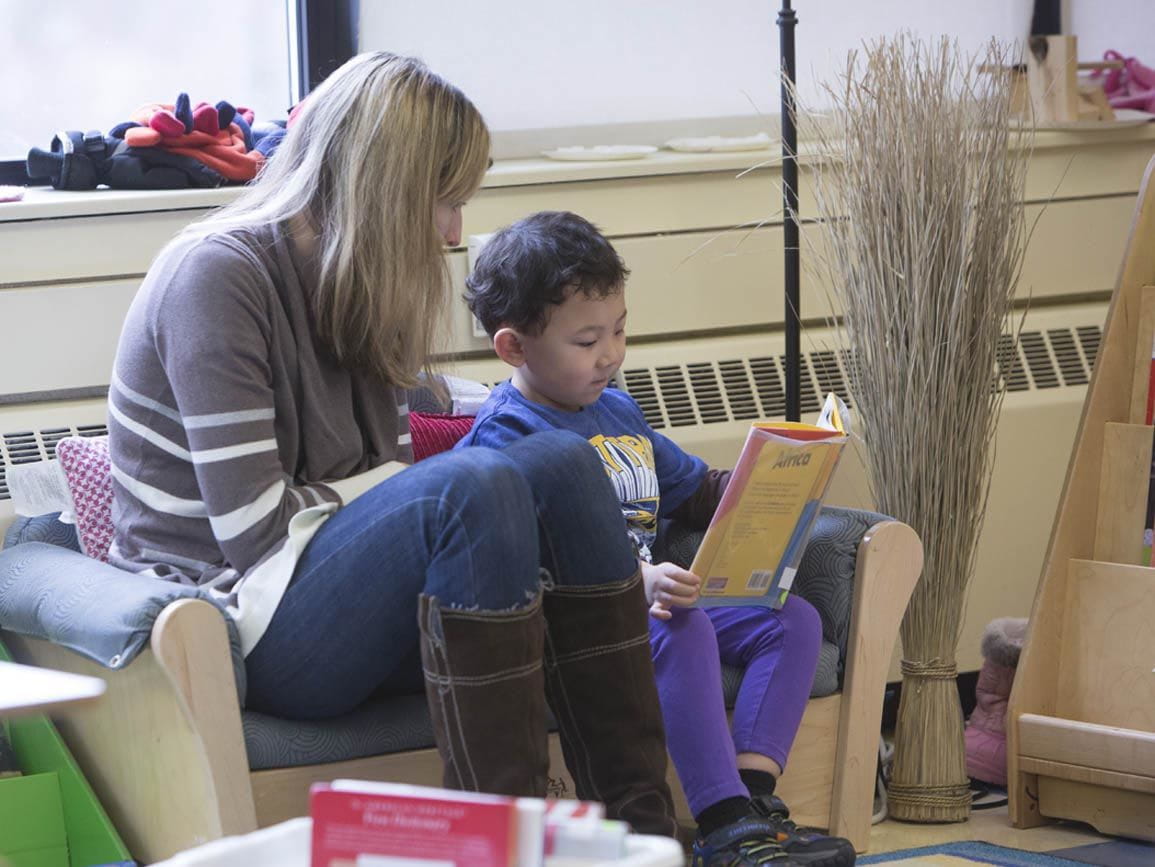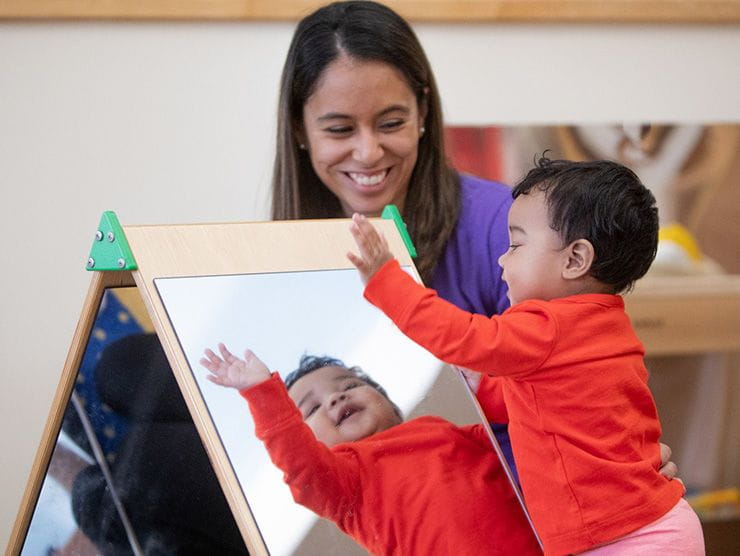During childhood, almost all children experience occasional nightmares and many children experience night terrors. Nightmares can be upsetting to children and parents, but have little or no developmental consequence.
How to Help Children with Nightmares
Although physically harmless, nightmares in children can be very frightening emotionally. Most children simply require our presence and reassurance to help them calm down and fall asleep again, especially for those children who may be fearful of falling back to sleep. Here are a few strategies to help reduce the occurrence of nightmares and how to help children feel safe and regain composure when they occur.
- Protect your child from frightening media images. Although children may have bad dreams about a variety of events in their lives, frightening movies and scary or violent TV shows, including the news, may cause our children to have more frequent nightmares.
- Expect and plan for nightmares. Almost all children have nightmares. Make sure you are able to hear your child if he or she cries out during the night, especially if your child has been having frequent nightmares. Remind your babysitters about possible bad dreams.
- Go to your child immediately when nightmares occur. If you hear your child call out during the night, go to him immediately. Your child may be merely talking in his sleep or just mumbling as he rolls over, but if he was awakened by a nightmare, he needs your presence. Some children will have a nightmare and not wake up. Unless your child is about to fall out of the bed and get hurt, resist waking your child because he will either resume normal sleep or eventually wake.
- Stay with your child and reassure her. If your child awakens due to nightmares, explain to her that she was having a bad dream. Sit on her bed, hold, and cuddle her. The fear from nightmares is real, even though monsters are not. Let your child know that it is safe for her to go back to sleep, but you may want to stay with her until she does. Leave the bedroom door open, offer a night-light, or leave the light on.
- Talk with your child about the nightmare. For children who can remember that they had a bad dream, discuss it with them. Talking about the nightmare the next day is a good idea, too. Reassure your child that it was a dream and not real life. If your child prefers not to talk about the nightmare, thats okay.
- Empower your child to feel some control over his dreams. Another way to help children with nightmares is to talk to them about ways to overcome the feelings of the bad dream—make up a happy ending to the dream, do a room check for monsters before bedtime, use a Native American dream catcher, or put some water in a spray bottle with the label "Bad Dream Spray" and let your child squirt some of the spray in her room before bedtime.
How Can You Help Your Child During Night Terrors?
A night terror is a sleep disruption that seems similar to a nightmare, but with a far more dramatic presentation. Like nightmares, night terrors can be alarming for parents but are not usually a cause for concern. Lucile Packard Childrens Hospital in Palo Alto, California, offers these tips for dealing with night terrors in children:
- Try to help your child return to normal sleep. You will probably not be able to awaken your child during a night terror. Turn on the lights so that your child is less confused by shadows. Make soothing comments. Hold your child if it seems to help him or her feel better. Shaking or shouting at your child may cause the child to become more upset.
- Protect your child against injury during night terrors. During a night terror, a child who is sleepwalking can fall down a stairway, run into a wall, or break a window. Try to gently direct your child back to bed.
- Prepare overnight babysitters for these possible episodes. Explain to people who care for your child what a night terror is and what to do if one happens.
- Try to prevent night terrors. A night terror can be triggered if your child becomes overly tired. Try to help your child go to bed early enough to ensure enough sleep.
When to Call Your Childs Physician Regarding Night Terrors
While night terrors in children are not harmful, they can resemble other conditions or lead to problems. Consult your childs physician if you notice any of the following:
- Drooling, jerking, or stiffening of the body
- Night terrors recurring three nights in a row
- Terrors lasting longer than 30 minutes
- Recurring daytime fears
More on Helping Children with Sleep Disruptions
- Its common for preschoolers to have nightmares or night terrors. But how do you help kids cope? Share and get advice on our parenting blog.
- Get tips for helping kids adjust to daylight savings times.
- Parents share advice about getting babies to sleep for new mom, Jessie.
- Get tips for helping children to sleep while on vacation from Dr. Craig Canapari.
- A wellness coach shares advice to help improve sleep for busy parents.
- Learn how to make dream catchers to comfort your children during the night.





